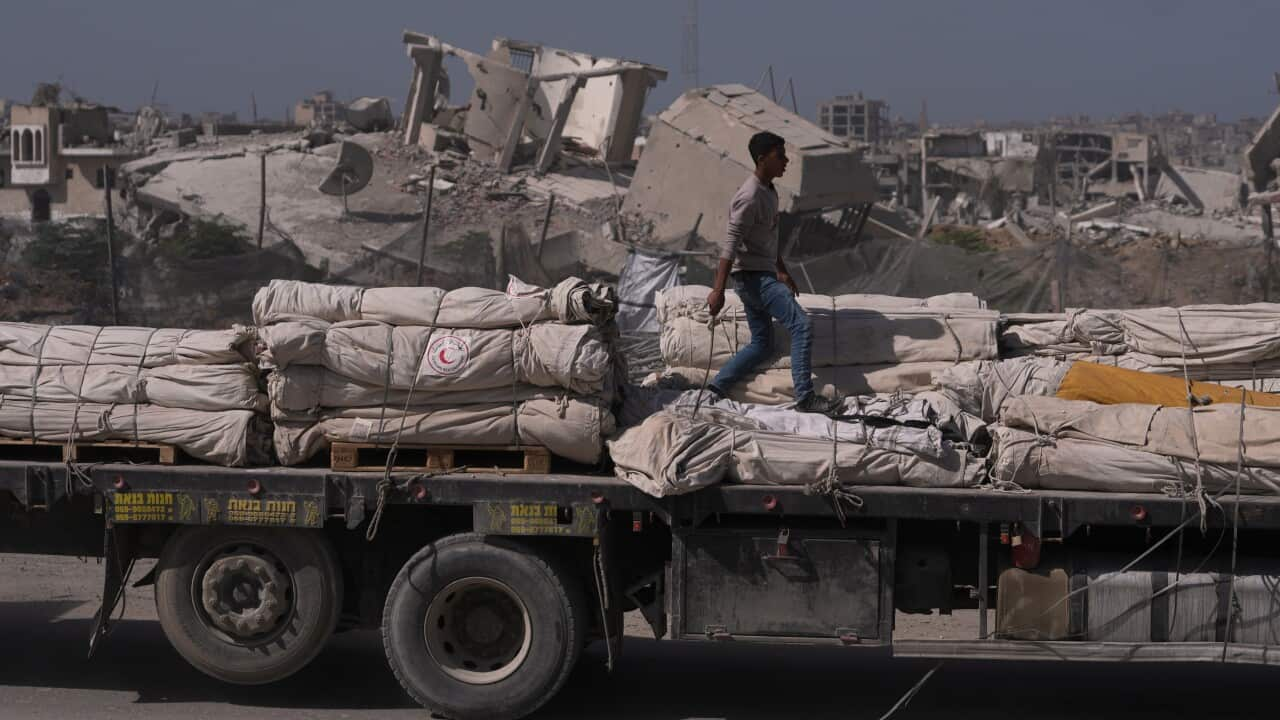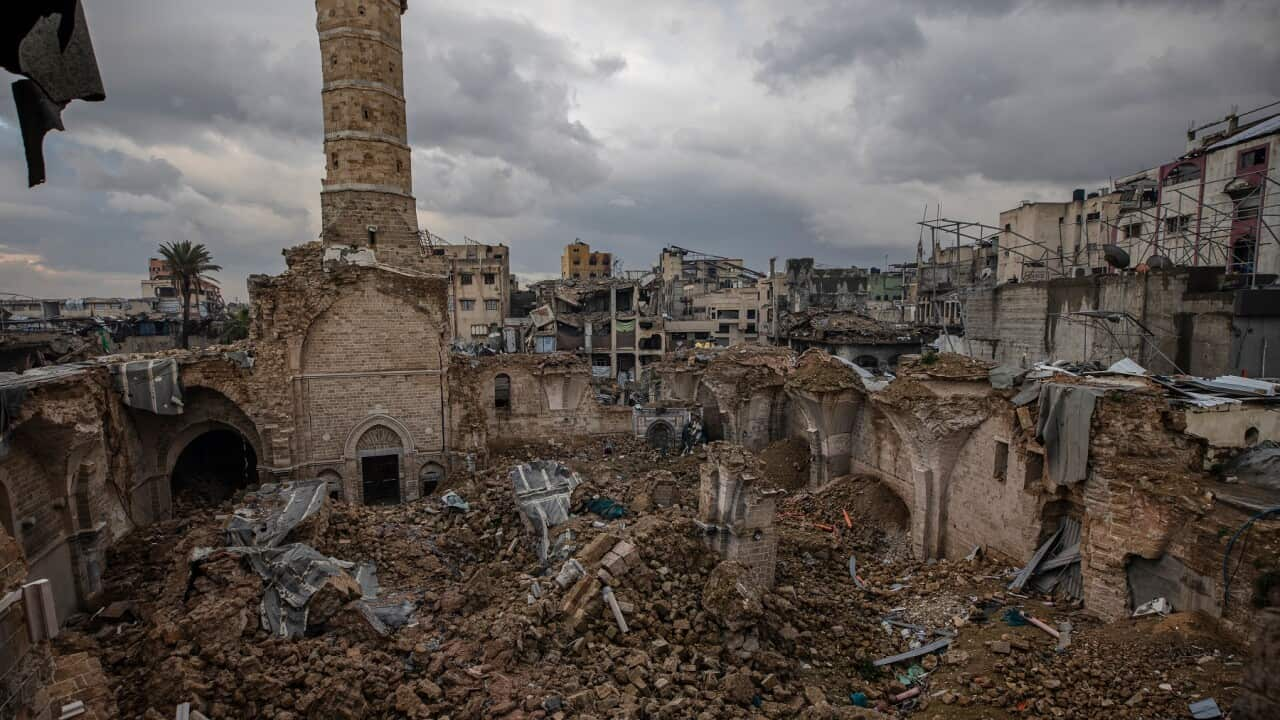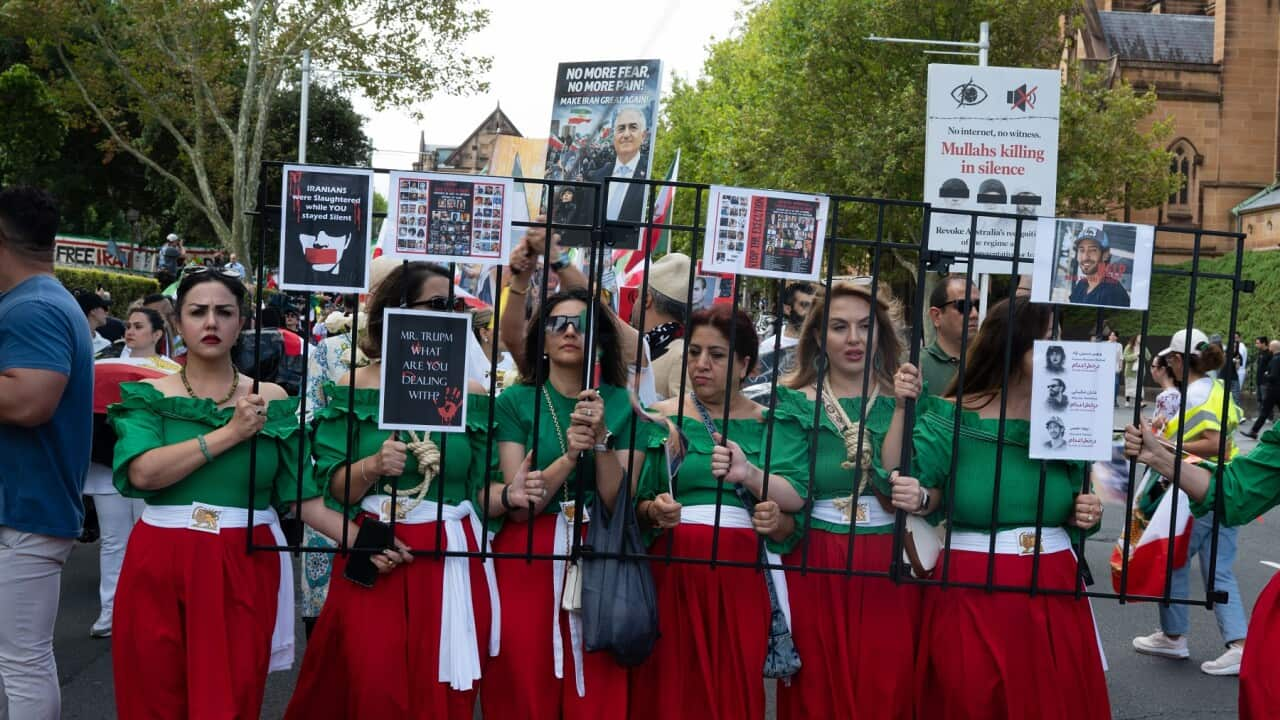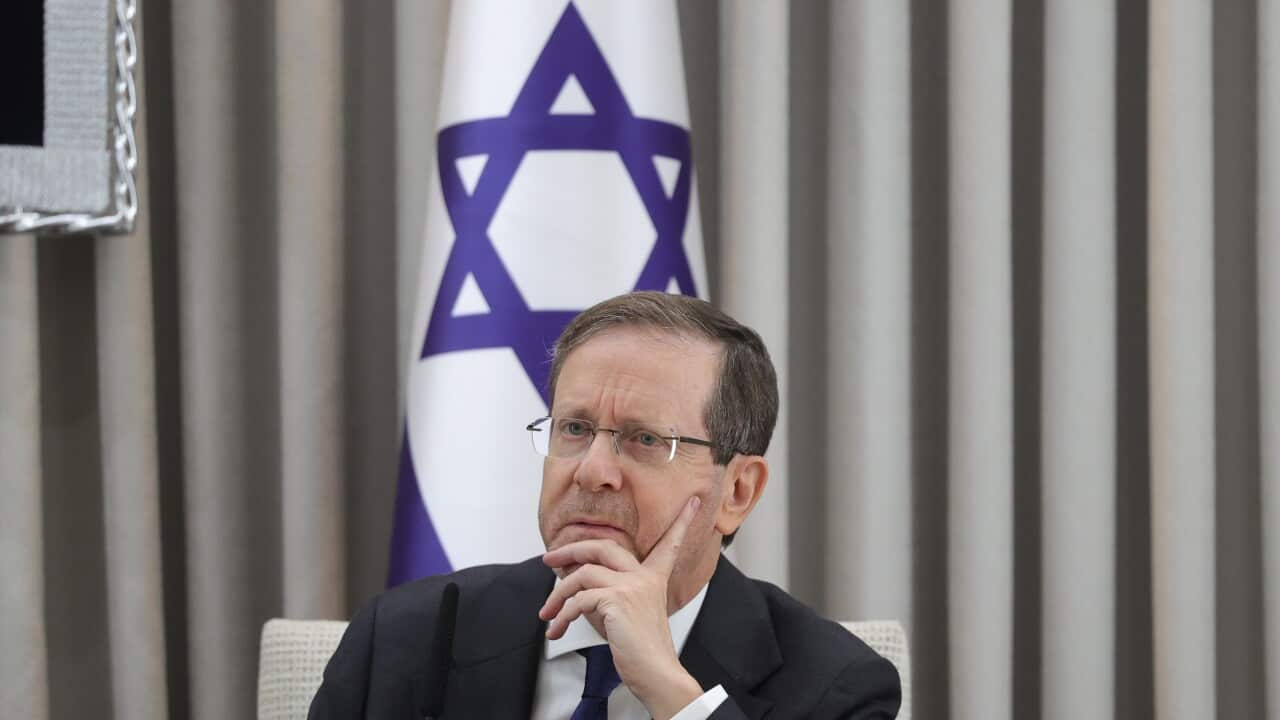Listen to Australian and world news, and follow trending topics with SBS News Podcasts.
TRANSCRIPT
The International Court of Justice at The Hague has issued an advisory opinion on Israel’s responsibilities in Gaza.
ICJ President, Yuji Iwasawa, says the court determined Israel had not provided enough supplies to sustain Gaza’s population.
"The court finds that the local population in Gaza Strip has been inadequately supplied within the meaning of article 59 of the Fourth Geneva Convention. In such a situation, Israel as an occupying power is under an obligation to agree to and facilitate relief schemes under that provision."
Justice Iwasawa also noted that as an occupying power, Israel has obligations under international human rights law to respect, protect and fulfill the human rights of the population of the occupied Palestinian territory.
He adds Israel had not substantiated its claims that UNRWA staff are linked to Hamas.
"The court notes that based on the case, there is no evidence that UNRWA as an entity breached the principle of impartiality within the meaning of article 59."
Although the ICJ’s opinion is advisory and not legally binding, it carries political and legal significance, coming as famine warnings persist in parts of Gaza and aid remains severely limited.
At the United Nations in Geneva, Secretary-General Antonio Guterres welcomed the decision and urged Israel to comply.
"This is a very important decision and I hope that Israel will abide by it. On the other hand, this decision comes in a moment in which we are doing everything we can to boost our humanitarian aid in Gaza and so the impact of this decision is decisive in order for us to be able to do it to the level that is necessary for the tragic situation in which the people of Gaza still is."
The UN says around 600 aid trucks a day are allowed to enter Gaza under the current US-brokered ceasefire, though far fewer are actually getting through.
Israel vehemently rejects the ICJ’s conclusions, saying it fulfils its obligations under international law and that the proceedings were biased.
Palestinian representatives describe the decision as a clear statement of Israel’s duties under international law.
This comes as Israeli Parliamentarians in Jerusalem approved the preliminary reading of a bill applying Israeli civil law to the occupied West Bank, a move widely regarded as a step toward taking control of the area.
The bill passed by a single vote, 25 to 24, in the 120-seat Knesset.
Deputy Speaker of The Knesset, Moshe Solomon, announces the result of the vote.
"I declare that the bill titled 'The Application of Israeli Sovereignty over Judea and Samaria Law, 5785–2025', proposed by Member of Knesset Avi Maoz, has been approved in its preliminary reading and will be referred to the Foreign Affairs and Defence Committee for preparation for its first reading."
The bill was introduced by members outside Prime Minister Benjamin Netanyahu’s ruling coalition, and his Likud party did not support it.
A second proposal to annex the Ma’ale Adumim settlement bloc passed by 31 votes to nine - one of the largest Israeli settlements in the occupied West Bank.
The vote coincided with a visit to Israel by US Vice-President JD Vance, one month after President Donald Trump said Washington would not permit Israel to annex the West Bank under his administration’s peace plan.
The United Nations maintains Israeli settlements in the West Bank are illegal under international law and that annexation would undermine prospects for a two-state solution.
Meeting Israeli President Isaac Herzog in Tel Aviv, Mr Vance says the US remains committed to ensuring the ceasefire holds and progresses.
He says peace is possible but would require persistence and co-operation.
"We're here to talk about peace. We're here to talk about how to ensure that the peace agreement started about a week ago sticks, that we move into Phase 2, Phase 3 with success. As the President [referring to Herzog] said, there will be torments along the way, it will be difficult, but I feel very optimistic based on our conversation with our Israeli friends and also with our Gulf Arab friends, that it's possible, that we actually can make peace stick, and that we can create the kind of environment where our Gulf Arab friends and our Israeli friends can build a better Middle East for everybody."
Mr Vance did not comment on Israel's vote to annex the West Bank.
The truce, part of President Trump’s 20-point Gaza plan, was intended to end two years of fighting between Israel and Hamas.
Both sides have accused each other of violations over aid access and the return of hostages.
According to Gaza’s Government Media Office, since the ceasefire came into force in early October, the Israeli army has allegedly committed 47 violations and killed at least 38 Palestinians, wounding 143.
During the same period, two Israel Defense Force soldiers were killed in Rafah, in southern Gaza.
Israel has accused Hamas of the attack but Hamas denies responsibility.













